Oak Hill Academy Admission Desk
Steve Smith and Oak Hill’s Basketball Fraternity
Great article that speaks to the power of structure and what we do well at Oak Hill Academy. As a former player for Coach Smith at Oak Hill Academy, I can attest to the power of his positive influence. Playing for, and later working with, him makes you want to do things right!
 (Jared Soares, USA Today)
(Jared Soares, USA Today) 
Thirty-two years on the same job can offer some less-than-obvious perks.
For Oak Hill Academy basketball coach Steve Smith and his wife, Lisa, it means that they get the opportunity to attend a lot of summer weddings.“I’ve lost track,” Smith said, chuckling during a recent phone conversation from his office on the school’s campus in Mouth of Wilson in Virginia.
Of course, the answer to “how many weddings of 100s of former Oak Hill players have you attended?”, had he contemplated a minute or two longer, would have been something between a lot and a whole lot.
“We just got invitations from Nolan Smith (a first-round NBA draft pick out of Duke and now an assistant with the Blue Devils) and Tyler Lewis (a senior guard at Butler),” he said of a couple of former Warriors’ guards. “So we’ve got at least two to go to…
View original post 1,420 more words
A new way to give to Oak Hill Academy and recognize a loved one
The Memorial Oak Program. The Development Office at Oak Hill Academy is happy to feature a new way to support The Academy and to memorialize a loved one with ties to our school.
There is an emphasis on environmental sustainability throughout our campus programs and The Memorial Oak Program is a logical extension of that. If Alumni or Friends of The Academy would like to designate $1,000 of their contribution to this program, an oak tree will be planted in memory of a loved one.
These trees are planted throughout the gorgeous 240 acres that is Oak Hill’s campus. What better way to symbolize the ongoing impact our alumni and friends make to the betterment of Oak Hill’s mission than a living memorial that continually adds to the campus beauty? Gifts in honor will include being added to the Memorial Oak plaque on display in the Oak Hill Academy Archives Room lobby and will serve as a continual reminder of the impact that individual or family has had on our mission.
To participate in this program, please click on the link below and look for the Memorial Oak in the gift designation box.
Oak Hill Academy Openings Available – Late Admission Boarding School
Greetings from “The Hill!” The Oak Hill Academy enrollment cycle is in full swing as we enter the early part of July. We will be accepting applications and considering quality applicants, for whom we appear to be a good fit, through July and into August in preparation for our 139th year. Our smaller summer school, in session through July 22, presents the best opportunity to visit campus with students present this summer. Let’s take a quick look at what to expect from a campus tour.
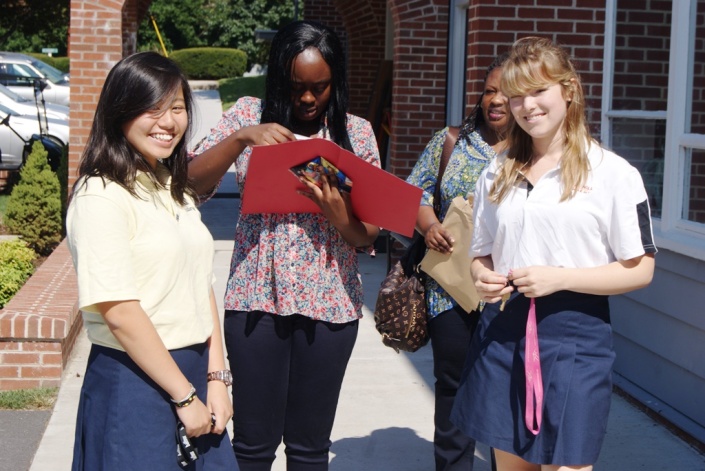
No two tours are the same and there is not a strict agenda I follow when conducting campus visits. My priority is to have you meet as many students, faculty and administration as possible because I feel that, while visitors enjoy the stunning Blue Ridge mountain views, it is the people who make the biggest impact. I’ve heard our campus described as a miniature college campus and, to some, we feel like a small town.
A campus tour will include a golf-cart driving tour of both the boys’ and girls’ sides of campus with stops to see dorm rooms, social areas, the Fletcher Chapel and Young’s Chapel Baptist Church. Then, it is on to the English Academic Building where we will be joined by a student ambassador who will take you around various classes. Don’t be surprised by the friendliness of our faculty and students (they vividly remember the nerves they felt on their tour and make a huge effort to make students feel welcome).
Following a meeting with our academic leadership (Principal, Guidance Counselor), it is usually on to lunch where we will undoubtedly be joined by several students. After lunch, I typically invite a couple of students to show the prospective student some of the social areas including the Alumni Campus Store and workout facilities. Along the way, expect to be greeted and have short conversations with everyone from our Head of School to various faculty, resident managers, and of course, more students. It really is a comprehensive, low pressure, friendly schedule.
The wrap up of a tour usually involves a sit down with the family and applicant to discuss their impressions, goals for themselves, and where they see the opportunities at Oak Hill Academy. Done correctly, the interview is more of a conversation.
To schedule your tour of Oak Hill Academy, please contact the Admission Office at mrodgers@oak-hill.net or call (276) 579-2619. Our availability is very flexible.
Oak Hill Academy -Boarding School with late enrollment
At this time of year, many of my admission calls begin with the question, “Is Oak Hill Academy still accepting applications?” We are, and I would like to take some time to explain the philosophy of late admission and rolling admission.
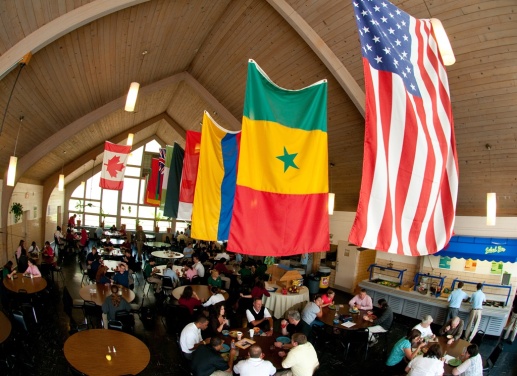
A review of our school’s website will uncover that Oak Hill Academy is a small, coed, college-prep boarding school that serves the very unique niche of focusing on the student who has not been having the kind of success of which they are capable. As grades come out at the end of the school year, parents and students are having the conversation that a change is needed. For some, poor grades expose a need for a change of academic environment, a change in peer group, or even a change in home dynamics.
When a student (and family) recognizes that attending Oak Hill Academy is an opportunity to make these kinds of changes and to redefine themselves in a new environment, we want to be available. We also intentionally keep space available for families who are having these conversations early in the school year.
Please visit our website http://www.oak-hill.net to understand these opportunities in greater detail. Our enrollment cycle accounts for families who are making these decisions at this time of year – well into the summer months. As the Director of Admission, I am happy to consider applicants who are a fit for this mission and I am currently conducting campus visits and interviews. Contact me now to discuss.
Creating a Close-Knit Student Body in the Age of Social Media

One of the defining features of our students’ experience at Oak Hill Academy is the sense of community and engagement with each other that we enjoy. All boarding schools tout this as one of the big advantages of boarding school over other educational environments. But at OHA, we feel that what is created each year is special – even in this context.
From campus tours that I conduct as part of the admission process, a recognition that our students are close with each other – and with the faculty and staff – is one of the top takeaways. Our students use the term “family” in a way that I could not for fear of sounding like a “salesman.” (That’s one of the reasons I love involving our current students on prospective family tours – they can say things I can’t!)
Over the 14 years I’ve worked at OHA (plus the important senior year I spent as a student here), I’ve thought about why we are so tight-knit. I have several theories:
- Our location in the picturesque, but rural, Blue Ridge Mountains leads to a mentality that we better take care of each other, since we’re all we’ve got.
- We are small – 150 students – so EVERYBODY matters and has a place in the community. A good deed or friendly gesture has an immediate impact on those around you. This leads to being habitually aware of how we treat each other.
- Our structured, conservative approach to cell phones, social media and other ubiquitous technology that is a part of teenage life leads to an engagement with the people around you that just isn’t possible for most teenagers today.
Let’s look at that last one a little closer. This is the point in admissions where the parents typically smile and nod in agreement while the student frowns and wonders if they can survive with that condition. Again, having our current students involved in tours is key. Simply put, our students who have experienced life untethered from a cable or cell signal, overwhelmingly recognize the benefits: more time for more productive activities, a sincere investment in the lives of their friends, less drama and judgement, and improved interpersonal (soft) skills. The art of conversation is alive and well on our campus.
Our students do not have access to their cell phones during the week and social media is blocked from internet access on campus. The recent policy adoption allowing cell phone access during the weekend (after the last academic class) is the result of a lot of careful consideration. Taking into account feedback from recent graduates and recent studies, we concluded that college preparation should include more practice with responsible use of technology. We did not want to jeopardize the environment of closeness we’ve enjoyed so we feel the importance of maintaining a focused, cell phone (and attendant social media)-free school week is important.
We anticipate there will be teachable moments aplenty as this policy is enacted. However, as Dr. Groves, our Head of School, explains, “Oak Hill Academy’s desire to continue to meet the needs of the contemporary student of a college prep boarding school … and to do so in tandem with the structure inherent to our historic mission—a mission that has proven so very successful.”
Our school was founded in 1878 and we are engaged in preparing students for success in the 21st century so some policies require occasional, careful rebalancing.
Learning Differences are in Oak Hill Academy’s “Wheelhouse”
As I often say, Oak Hill Academy occupies a very unique place on the boarding school spectrum. We are college prep without being “sink or swim.” We are skilled and experienced at working with students who have the intentions but, for a variety of reasons, have not learned to execute effectively. Our kids are smart, they often just learn differently. What we find, over and over, is that once a student tastes success, they want more of it.
While I do not portray Oak Hill Academy as a specific “learning disability school,” the fact is that we have a lot of experience in this area. Oak Hill Academy’s small size and relational approach historically attracts a lot of inquiries from families with a student who may be struggling academically and are seeking a change in environment that addresses learning challenges. It is not uncommon for applicants to come to us with a specialized learning plan, or an IEP as it is commonly known, and we often find that the majority of suggested accommodations are part of our normal course of business here.
In a classroom of 8-12 students, we can do that. Individual strengths and comparative weaknesses are known, and more importantly addressed, by our teachers. Relationships based on trust and a sense of investment abound in this environment, especially since most of our faculty live on campus with their own families. The kids know us too!
This unique dynamic – students and teachers living together in a small community – also shows up in the amount of time we can dedicate to “shoulder to shoulder” coaching in addition to the classroom instruction time. Our schedule includes a dedicated “8th period” for subject-specific tutorials, organizational check-ins, and homework remediation. Our principal is also hands on through her management of the Resource Center, an administrative study hall to address executive and learning challenges across the curriculum.
Perhaps the most dynamic situation comes in the form of structure and a positive peer surrounding. While we are definitely a college preparatory school (95% college acceptance for our students over the last 10 years), we are not the hyper competitive situation many associate with boarding school. Our students like to study together and support each other’s success. It is “cool” to do well and handle academic responsibility here. Our students high-five each other as tests and quizzes are returned in class, often because they studied together!
The structure of afterschool support is complemented by the mandatory “quiet time” in the dorms where students are required to be in their rooms, independently working or in arranged peer tutoring. The library is also available for use during the mandatory evening study time.
In small classes, learning styles are also recognized. Material is presented in a variety of ways – visual, auditory, hands-on for example – before teachers move on. The predominate teaching style at Oak Hill Academy is to facilitate dynamic class discussions. The diversity of our student body makes this method particularly engaging and our students develop their “voice.” An emphasis on coaching the processes of writing across our curriculum means that they better express themselves and develop necessary skills to write well in college.
In this setting, maintaining this mission since 1878, Oak Hill Academy has developed an intentionality of working with students whose learning differences and personal habits flourish in our structured, supportive environment. If you are seeking such a “turning point” for your student, please contact the Admission Office at mrodgers@oak-hill.net or call (276) 579-2619.
The February Challenge – Learning Perseverance
I would like to share a devotion delivered this morning in our Monday morning faculty meeting today. February is known in the boarding school world as “the toughest month” historically – the long Christmas Break (which, at Oak Hill Academy, is nearly 3 weeks long) is far in the rearview mirror and Spring Break (2 1/2 weeks long here) is still off on the horizon. The days are shorter, the weather keeps a lot of outdoor activities at bay, we are in the “meat” of the curriculum, and in short, it is a tough month. It is also the time that our students get great practice in learning how to develop what is one of our biggest goals for our students – perseverance and grit. As the majority of our faculty and staff live on campus alongside our students, we are keenly aware of the challenges of February.
February 22 – Whew!
I was talking with an adult friend of mine the other evening who is taking the Real Estate Licensing test. He was explaining how difficult it was to find the time, energy and work/family balance to study. He remarked, “I wish I would’ve learned this stuff in school.” I agreed with him, but the more I thought about it – we do, or we should learn this “stuff” in school. A high school class on Real Estate Law is debatable, but one of the main things that we get out of a good education is the ability to meet the “stuff” of these kinds of challenges – balancing and persevering – in adulthood. The more I thought about this conversation, I kind of seized upon this idea that at Oak Hill Academy, at our core, this is what we are really teaching our kids. February is the month where this most obviously comes to light.

In February, we find ourselves at the corner of “Shut Down Street” and “Push Through Avenue.”
Recently, I read an article in The NewYorker by Maria Konnikova about a study that attempted to identify the source of resiliency. How People Learn to Become Resilient One of the points she makes is that it is difficult to study resiliency as it is a kind of “chicken or the egg” proposition. Is resiliency already programmed inside of us waiting to be tested, or does it develop through being tested?
In the movie, Fight Club, the main character asks, “How much can you know about yourself if you’ve never been in a fight?”
Jennifer E. Jones wrote a great commentary/devotional on the subject here: Battle Wounds from the Good Fight There are similarities between what happens in February with keeping our Christian Faith. Fights involve a back and forth, ups and downs. February at Oak Hill Academy is like that – we have our fun, but it also the time where we continue to push our students academically when many are trying to default to “shut down mode” and to top it off, we have several Saturday class days scheduled this month!
In the bigger picture of life, it often seems that as we attempt to grow in our spiritual walk, this world will fight us for it in this back and forth way too.
In any fight, responses seem to fall into one of three categories:
- Defaulting into negative self-talk and “beating ourselves up”
- Going on the defensive and simply covering up and just enduring the flurry
- We can get on the offensive and push through – to “fight” remembering God’s promise that no weapon formed against you will succeed at taking you down (Isaish 54:17)
Back to our students: One thing I try to keep in mind is that I (we), have way more experience with the type of “February Fight” our students are facing right now. Overwhelmingly, our students come to Oak Hill Academy with their background and main experience in life to this point being a default to “options 1 or 2.” I try to keep this in mind, especially in February.
Mark my words – the school year gets easier, the “bounce” in our step returns. I used to think it was as simple as the improved weather of Spring (I’m still sure that is a big factor). But today, I’d like to focus on the possibility that it is in large part due to the realization by our kids that they have fought through. They’ve come to know themselves a little better because they’ve been in a “fight.” They’ve pushed through. That’s powerful.
We, with some age and experience on our sides, have fought through many “Februaries of our Christian Walk” and my hope is that we can use it to grow and know ourselves better as we choose option 3, to fight through with God’s help and mercy. The opportunities to be examples and encouragers to our students who are learning more about this option are plentiful in February and throughout the school year.
I Timothy 6:12: Fight the good fight of faith. Take hold of the eternal life to which you were called when you made your good confession in the presence of many witnesses.
Analyzing the “Every Student Succeeds Act” and What a Good Boarding School Offers
In 2002, the “No Child Left Behind Act” was signed into law. At the time, I was a teacher in a small public school in rural Oklahoma and, when the dust settled, I remember having very mixed emotions. On the one hand, the information-gathering focus of the law was encouraging – we seemed to be on the path of being able to quantify our students’ needs and shortcomings. On the other hand, a focus on standardized test performance seemed ill-fated. I remember my colleagues and I picturing a classroom where content and relevancy would be dictated by the question “will that be on the end of the year test?” To put it mildly, the teachers I taught with were fearful of losing the “teachable” moments where the discovery of learning and self-actualization that comes with an engaging classroom would be replaced with “teaching to a test.” The fact that school funding would be tied to this dynamic was scary. We lamented that the focus did not seem to on the child, but rather the school district – we began to refer to it as the “The No School Left Behind Act.”
Flash forward to 2015 and many of the initial fears of NCLB have been realized. Good-intentioned as it was, in the rush for school performance numbers, many teachers became disillusioned and children were still being left behind. On December 10, 2015 the “Every Child Succeeds Act” (ESSA) was signed into law, representing the culmination of 4+ years of massive effort from Educators and Law-Makers (from both sides of the aisle) to improve upon the ideas of NCLB. I, for one, applaud the shift in focus away from standardized test scores and toward classroom quality that this law represents. It’s encouraging in many ways (For a summary see: http://www.ed.gov/essa). Still, many families (with the financial means and inclination) will continue to compare the public school experience and the opportunities available in a private, boarding school environment.
In my current position as Director of Admission at Oak Hill Academy, I spend a lot of time with people at this juncture. In my own education background, I attended both a large public high school and two small boarding high schools and, in my career, I’ve taught in both settings. Oak Hill Academy occupies a very unique position in the boarding school world – college-prep, but not “sink or swim” and our niche is in working with students who have not had the kind of success of which they are capable and who may have become unmotivated. Surely, my perspective here is shaped by this mission and the opinions expressed are my own.
Here, I’d like to offer some insight, using some of the key features of ESSA, for those considering Boarding School as an opportunity, that for some students and families, can represent a better educational fit. I must stress up front that there is a spectrum of boarding schools, each with a different culture, focus and mission and for those considering boarding school, choosing one should come down to knowing your child’s needs and personality and knowing the prospective school well. It is a big decision and far from a “cookie cutter” proposition. The following may help you form the questions that guide your research and consideration.
ESSA requires high academic standards that will prepare them to succeed in college and careers.
For the motivated student in public school, this is great news – it will lead to more challenging and, probably, more engaging classrooms. But for unmotivated students, or those with learning styles that are difficult to address in large classroom settings, this could widen the performance gap.
As for motivation toward college success? For students, boarding school often feels like a huge “step toward college” and can be essential in building confidence that leads to motivation and college aspiration. Being away from home can be empowering in this regard. At Oak Hill Academy, I see students who come to own their success and want more of it – largely because they are building the self-confidence that comes from being away from home. There’s a safety net of structure (lights out, school-wide study time built into the schedule, afterschool tutorials), but the students are more likely to “own” their educational experience.
ESSA ensures that vital information is provided to educators, families, students, and communities through annual statewide assessments that measure students’ progress toward those high standards.
Here again, the big advantage of small boarding schools is classroom size. This feedback on student progress is crucial, and in a classroom size of 20-30 students (or more), testing is required to obtain this information. At Oak Hill Academy and other small boarding schools with class sizes of 10-12 students, the relational aspect of knowing your student well (and vice versa) means that progress is more organically measurable. Classroom assessment is done on a daily a basis through discussion, direct interaction and a wider variety of learning style engagement.
In a small boarding school environment, interpersonal intelligence and social development can be the most observable areas of growth – apart from academic standards of progress. An engaging campus life is a big benefit of a good boarding school. Through exposure to a wide variety of afterschool and weekend activities, students can develop new passions and the “soft skills” of social intelligence. In a large-school setting, the door to these opportunities are often guarded by the “bouncers” of confidence, social pressure, or even transportation logistics. In a small boarding school, like Oak Hill Academy, there is a much greater sense of belonging to a community that can make these activities more accessible.
ESSA maintains an expectation that there will be accountability and action to effect positive change in our lowest-performing schools, where groups of students are not making progress…
Clearly this is emphasizing teacher accountability and, for good teachers, this is not something to fear. I often point out to prospective students that a small boarding school (where we live together 24/7 for long stretches of time) will expose your areas of weakness AND force you to deal with them. This is also true for our faculty. In large school districts, with tenure possible, it is often exceedingly difficult to identify and improve underperforming teachers even with testing standards in place. Often the best aspects of teaching are not quantifiable such as how we build self confidence, self esteem, mentor and, in general, lift up our students. These things require an environment where relationships are a focus. This is difficult (not impossible) to achieve in large public school settings, but it is next to impossible to assess in a large faculty. Small boarding schools like Oak Hill Academy, with 150 students and a teaching faculty of 22, have a student to teacher ratio that ensures these relational aspects are real and on display. It has allowed building (and culling when necessary) a staff that is mission-appropriate.
The newly enacted ESSA represents a great step forward in addressing the challenges facing our public school system. But, there will always be a place for the boarding school option as an alternative. If you or your student is considering boarding school, hopefully these thoughts can add to the discussion about what makes a boarding school “good.” More importantly, it can help guide your search for a boarding school that is a “good” fit. I invite you to contact me to discuss this topic or Oak Hill Academy specifically and to learn more about your student.
Mike Rodgers, Oak Hill Academy (276) 579-2619 or mrodgers@oak-hill.net
Boarding School Morning Devotions: “Why We Teach”
One of the hallmarks of campus life at Oak Hill Academy is that we start each school day, together as a school community, in homeroom in the Chapel. We open the day in short prayer and a devotion is delivered by different members of the school community – including students on Friday. Our campus minister gave this morning’s devotion, and it was perhaps more obviously linked to a Bible verse than usual. I found it a powerful message on a lot of levels. As our students prepare for mid-term exams later this week, it was a good challenge to finish strong and to let them know that our faculty is in their corner to help them do just that. I also feel it gives a good insight to the campus culture and the approach our teachers take in establishing a very relational classroom experience for our students.
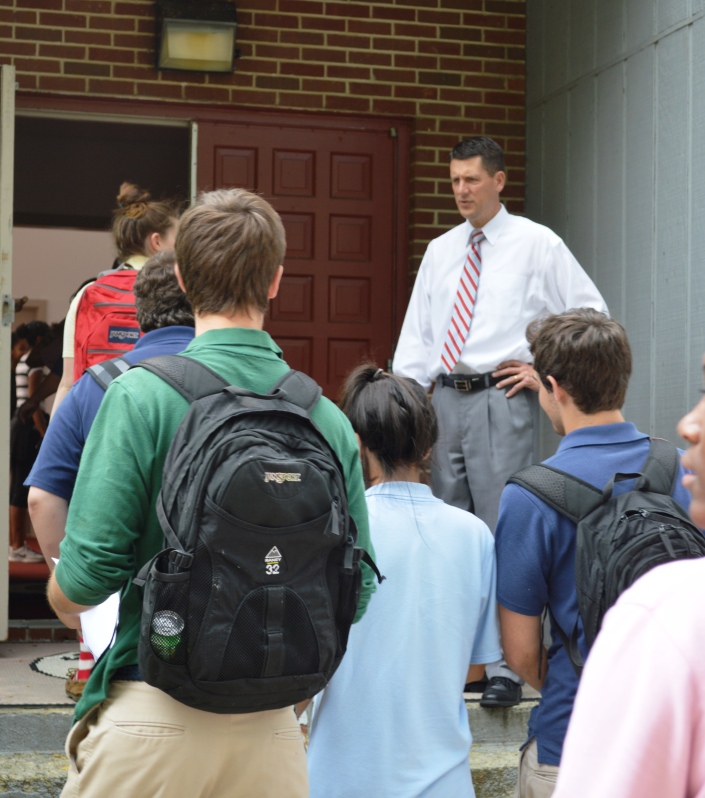
Please see the transcript of the following devotion, delivered this morning by Rev. Doug Turnmire, our campus minister and faculty member.
Ephesians 4:11-12, “It was he (Jesus the Christ) who gave some to be apostles, some to be prophets, some to be evangelists, and some to be pastors and teachers, to prepare God’s people for works of service, so that the body of Christ may be built up until we reach all unity in the faith and in the knowledge of the Son of God and become mature, attaining to the whole measure of the fullness of Christ.”
Working with adolescents it is common to hear them talk about what they want to do in life. I guess we’ve all had those discussions. As a kid I wanted to be an archaeologist. I’m still fascinated by what past civilizations reveal to us about our common humanity.
Saturday night some of us went Christmas caroling. We had a lovely time. I enjoyed it more and more as we went from house to house. I drove a van with students, and when I drive with students I usually tune out their conversations. Think about others stuff, or at least pay attention to driving so as to not hit any deer. But Saturday night a conversation caught my ear. It was another “what do you want to do in life” discussions, and one person said, “I don’t want to be a teacher. That takes too much patience. I don’t know how teachers put up with us. I couldn’t do it.”
I don’t know about other teachers, but there are days I don’t know if I can do it. I became a teacher by accident. Teaching came with the job of being the school chaplain and pastor of Young’s Chapel. Before coming here I spent a year in a chaplain residency program at a major trauma hospital. When I interviewed for the position I thought, “ I’ve always liked school. I’ll give teaching a shot.” Probably not the best reason to be a teacher.
Why teach? True or False: For the money….
We teach because we believe teaching saves humanity. We teach because we believe you deserve the ability to think, to discover your talents, to uncover your creativity. We teach because each generation deserves the chance to make the world a better place than the previous generation. We teach to you not only the ability to survive, but to thrive, and create hope for the generation after you. We teach so we will not live in ignorance because ignorance leads to fear; fear leads to anger; anger leads to hate; and hate leads to suffering (to quote Yoda.)
We teach because we believe each of you has potential you have not appreciated, or you have not discovered. We teach because we believe God gives each of us talents to use for ourselves and for others. We teach because we believe each of you is a child of God, created in God’s image, loved by God. And God has given us the opportunity and responsibility to use our gifts wisely. We teach so you are prepared to work and serve in our world.
Thanksgiving Break comes to Oak Hill Academy
The boarding school lifestyle is built around milestones of the school year – The first open weekend, the first major holiday break or exam week, for example. The 2015-16 school year, now 2 1/2 months in, has been filled with such milestones, big and small. Almost unanimously, our students have been surprised at how quickly we have arrived at our first major break of the school year: a 10-day break for Thanksgiving. That is a really good sign of a productive year.
Our student body comes from many far-flung places and our breaks need to be significant to accommodate travel schedules. With over 15 countries and over 20 states represented, many of our students fly home or are invited by close friends they’ve made at Oak Hill Academy to enjoy the holidays with their families. We’ve become logistics experts in assisting with travel plans for our students over the years. It is an exciting time on “The Hill” today and I wanted to share some images from today’s departure for Thanksgiving Break 2015!
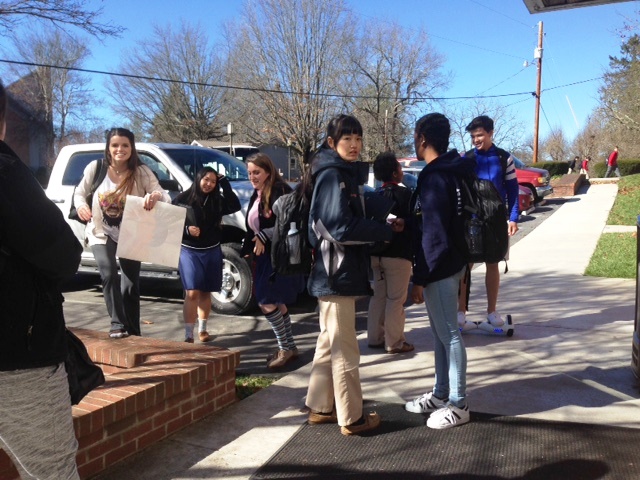
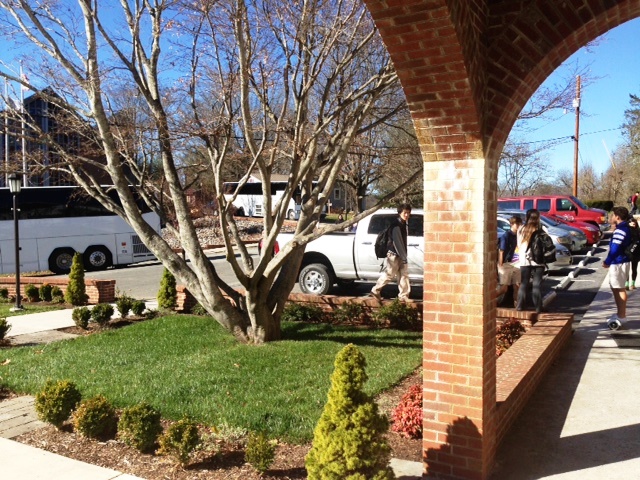


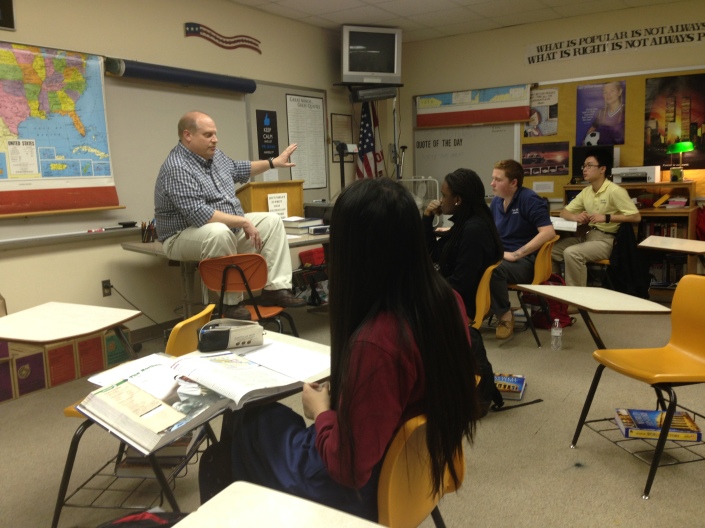
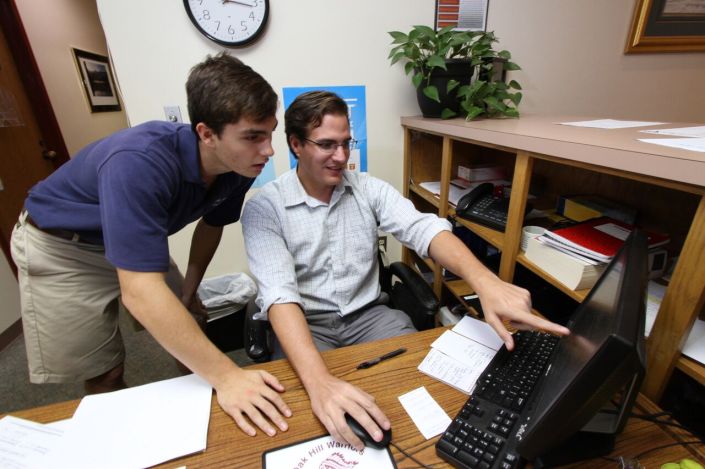


You must be logged in to post a comment.